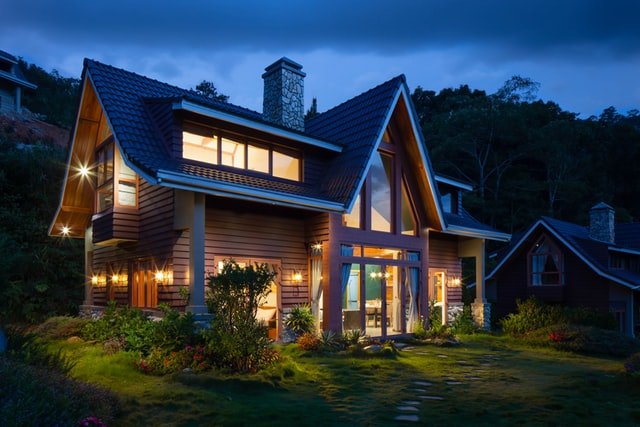Buying a Second Home to Rent: Dos and Don'ts
/Buying a second home to use as a rental property is a good idea if you know what to do to get the most out of your investment while avoiding the pitfalls of owning a rental property. As a property investor, you will have to deal with tenants, maintenance, and periods when your rental is vacant. The steps you take at the beginning (before you buy the home) can make all the difference to your success as a landlord.
What are the things you should do or not do when you buy a second home or investment property?
The DO’S of Buying a Home to Rent
1. Know why you want to buy the home.
What do you want to do with the rental? Do you want to use the home for your own vacation home as well as a short-term rental property? Or is it going to be used exclusively as a rental property? Do you want a finished rental, an air b-n-b or long term rental?
You’ll need to be clear about what you want to do with the home. Having clarity on this will guide the other choices you make.
2. Research the housing market in your location.
Once you have decided the direction you want to go with the property, you can now determine the parameters for assessing the merits of your chosen location and any potential property. Some of the things to consider when researching a housing market are the number of schools in the area, the job market, proximity to commercial centers, crime rates, and easy access to transport routes.
3. Run the numbers before you buy.
A home might look like a good deal on paper but the reality of owning it could be an entirely different story. Before you buy a home, know the cost of fixing it up, plus the cost of ongoing maintenance. Calculate the potential rental income from the property and the probable rate of appreciation. Also, factor in taxes, the down payment on the home, and mortgage costs.
*If you need help figuring this out let me know!
4. Think of the home’s resale value.
Think of your exit strategy before you put money into a rental property. If you decide to sell, how easy will it be to find a buyer for the home and how much profit are you likely to make? To make a rental home easier to sell down the road, make sure it will perform well, either as a rental property or as someone’s primary residence.
5. Think of it as a potential retirement home.
Even if you don’t think you are ever going to want to live in the home when you retire, it is still a good idea to include that as a possibility. This allows you to look at the home from the perspective of a home you can live in. Adopting this perspective will ensure that you buy the best home you can afford.
6. Consider hiring a property manager.
Managing a rental property is a lot of work. As a matter of fact, it takes so much work that it can actually feel like a job. That’s because a rental property is not an entirely passive form of investment; you do need to be involved in the management of the property. But if you hire a property manager to oversee the operations of the rental it can become a wholly passive source of income.
The DON’TS of Buying a Home to Rent
1. Don’t underestimate the importance of location.
Buying the right property in the right location is the first, second, and third rule of property investing. If you get it wrong with the location, you won’t get it right in the other areas of the investment. An average rental home in a thriving market is better than a lovely home in a place nobody wants to go to.
2. Don’t forget you will become a landlord.
You cannot “set and forget” a rental property as you can do with digital assets. As the owner of an investment property, you have to deal with tenants. This will sometimes mean getting calls in the middle of the night, on weekends, during vacations, or in the dead of winter. You must always be available to deal with the tenants’ complaints and also keep up to speed with maintenance.
3. Don’t ignore marketing.
Even in the best location, you must advertise your property in order to find tenants. But you just don’t want to find renters, you want quality renters who will pay the rent on time and not damage your property. The better you are at advertising and attracting those kinds of tenants, the more profitable your investment property will be.
4. Do not overlook the importance of maintenance.
This is easily the most important aspect of owning and operating a rental property. Good maintenance will let you attract the right kind of renters and also keep your operational costs low. This means you will simultaneously improve income while reducing costs. The best way to do this is to create a schedule for preventive maintenance.
5. If you haven’t ever had a fixer upper, and know what it takes, don’t buy one.
Fixing up a home or multi- family unit sounds great but if you haven’t dealt with one before, don’t have the resources or extra money to fix it up, it can end in a disaster or money pit. Start with something that has minor updates or is already updated. Then once you have had the rental for a while, then take on a harder project for your next investment.
This Blog was Written by BigHorn Rentals.










